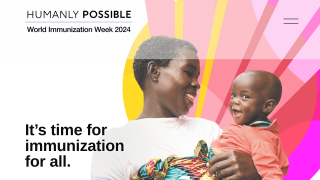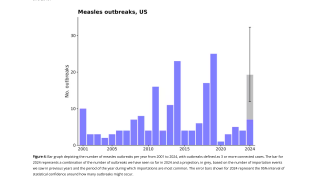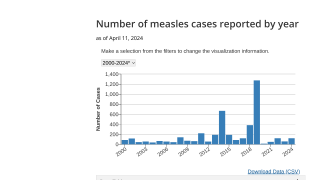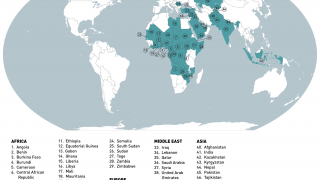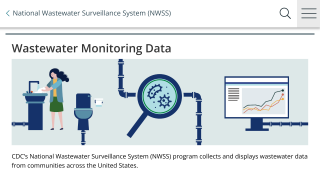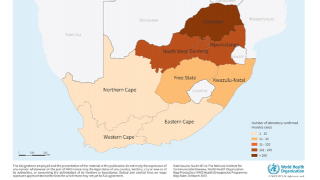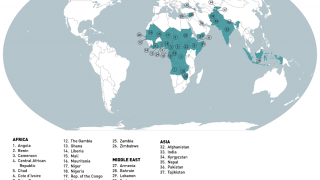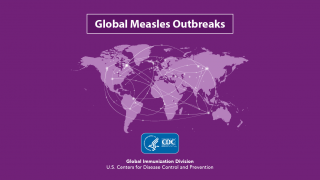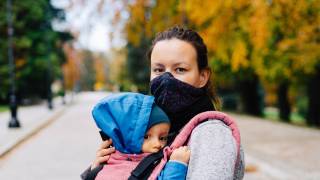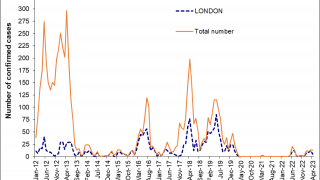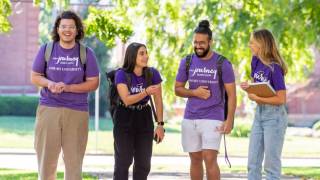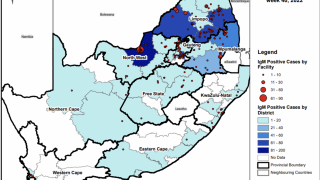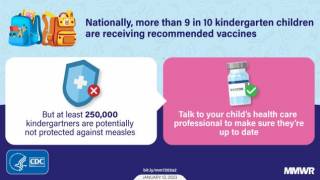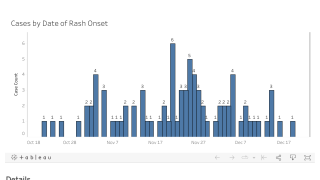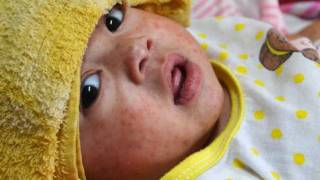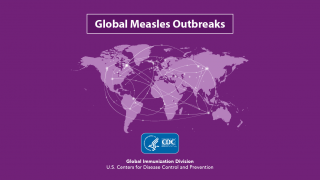Can MMR Vaccination Enhance COVID-19 Immunity?

A new study published in the journal of the American Society for Microbiology indicates that the mumps IgG titers, or levels of IgG antibody, are inversely correlated with severity in recovered COVID-19 patients previously vaccinated with the measles-mumps-rubella (MMR) vaccine.
Published on November 20, 2020, the researchers in this study found a significant inverse correlation (rs = -0.71, P < 0.001) between mumps titers and COVID-19 severity within the MMR II sub-group.
Within the MMR II group, mumps titers of 134 to 300 AU/ml (n=8) were only found in those who were functionally immune or asymptomatic.
And those study participants with mild COVID-19 symptoms had mumps titers below 134 AU/ml (n=17). All with moderate symptoms had mumps titers below 75 AU/ml (n=11). All who had been hospitalized and required oxygen had mumps titers below 32 AU/ml (n=5). Titers were measured by Quest Diagnostics using their standard diagnostic protocol.
However, there were no significant correlations between mumps titers and disease severity in the comparison group, between mumps titers and age in the MMR II group, or between severity and measles or rubella titers in either group.
"We found a statistically significant inverse correlation between mumps titer levels and COVID-19 severity in people under age 42 who have had MMR II vaccinations," stated the lead study author Jeffrey E. Gold, president of World Organization, in Watkinsville, Georgia, in a press release.
"This may explain why children have a much lower COVID-19 case rate than adults, as well as a much lower death rate.”
The paper said that while the associations that we have observed between MMR II and COVID-19 do not prove causation, the significant associations lend further support to the theory that the MMR II vaccine may provide long-term, cross-protective immunity against COVID-19.
The majority of children in the USA get their first MMR vaccination around 12 to 15 months of age and a second one from 4 to 6 years of age.
"This is the first immunological study to evaluate the relationship between the MMR II vaccine and COVID-19. The statistically significant inverse correlation between mumps titers and COVID-19 indicates that there is a relationship involved that warrants further investigation," added co-author David J. Hurley, Ph.D., professor, and molecular microbiologist at the University of Georgia.
"The MMR II vaccine is considered a safe vaccine with very few side effects. If it has the ultimate benefit of preventing infection from COVID-19, preventing the spread of COVID-19, reducing the severity of it, or a combination of any or all of those, it is a very high reward low-risk ratio intervention. Maximum seropositivity is achieved through two vaccinations at least 28 days apart.”
Suggestions for further research include randomized controlled clinical trials of MMR II, investigations of anti-mumps antibodies to assess potential effects against SARS-CoV-2, the utilization of larger sample size, and employing more-predictive types of analysis of data to establish a causal link between various levels of immunity offered by MMR II and severity of COVID-19 symptoms.
“Based on our study, it would be prudent to vaccinate those over 40 regardless of whether or not they already have high serum MMR titers,” concluded Dr. Hurley.
A similar study published in The American Journal of Medicine on October 23, 2020, suggested 'the MMR vaccine may protect against COVID-19, including high-risk individuals, such as the elderly with comorbidities, and health care workers and first responders with COVID-19 patients, especially individuals living in long-term care facilities and the related institutional staff.'
Previously, a worldwide study was announced on September 3, 2020, co-led by Washington University, University College London, and the University of the Witwatersrand in Johannesburg, South Africa, plans to determine the MMR's vaccine efficacy against COVID-19. This phase 3 study aims to enroll 30,000 healthcare workers. In some countries where the MMR vaccine isn’t widely given to children, these healthcare workers may be receiving the vaccine for the first time.
The current MMR vaccine was developed by Maurice Hilleman and was licensed for use by Merck in 1971.
The U.S. FDA authorized MMR II vaccine contains the Edmonston strain of measles, the Jeryl Lynn (B-level) strain of mumps, and the Wistar RA 27/3 strain of rubella. And the inactive ingredients include sorbitol, sucrose, hydrolyzed gelatin, recombinant human albumin, fetal bovine serum, other buffer and media ingredients, neomycin.
In various clinical studies, a single MMR II injection produced the vaccine-induced measles hemagglutination-inhibition antibodies in people 95 percent of the time, mumps neutralizing antibodies in 96 percent, and rubella HI antibodies in 99 percent of susceptible persons.
However, a small percentage (1%-5%) of vaccinations may fail to seroconvert after the primary dose. The most common side effect of vaccination with M-M-R II is pain at the site of the shot for a short time. Other side effects may include fever and rash.
But, the M-M-R II is contraindicated in certain individuals, including those with a history of hypersensitivity to any component of the vaccine, including gelatin. If vaccination of postpubertal females is undertaken, pregnancy should be avoided for 3-months following vaccination.
The FDA says ‘every vaccination decision should follow individualized discussions between certified healthcare providers and their patients.’ Most pediatricians, health clinics, and pharmacies offer MMR vaccination services in the USA.
The American Society for Microbiology is one of the largest professional societies dedicated to the life sciences and is composed of 30,000 scientists and health practitioners. ASM's mission is to promote and advance the microbial sciences.
PrecisionVaccinations publishes research-based vaccine news.
Our Trust Standards: Medical Advisory Committee


